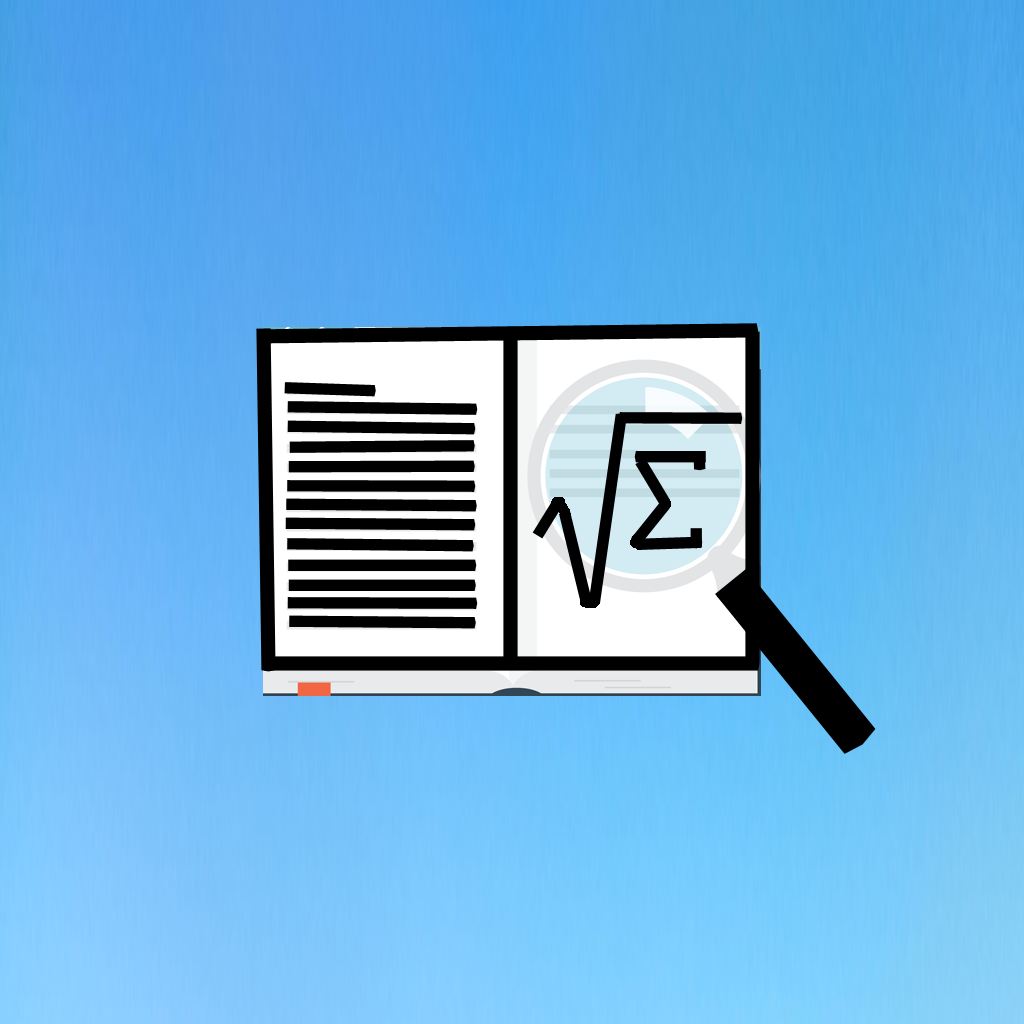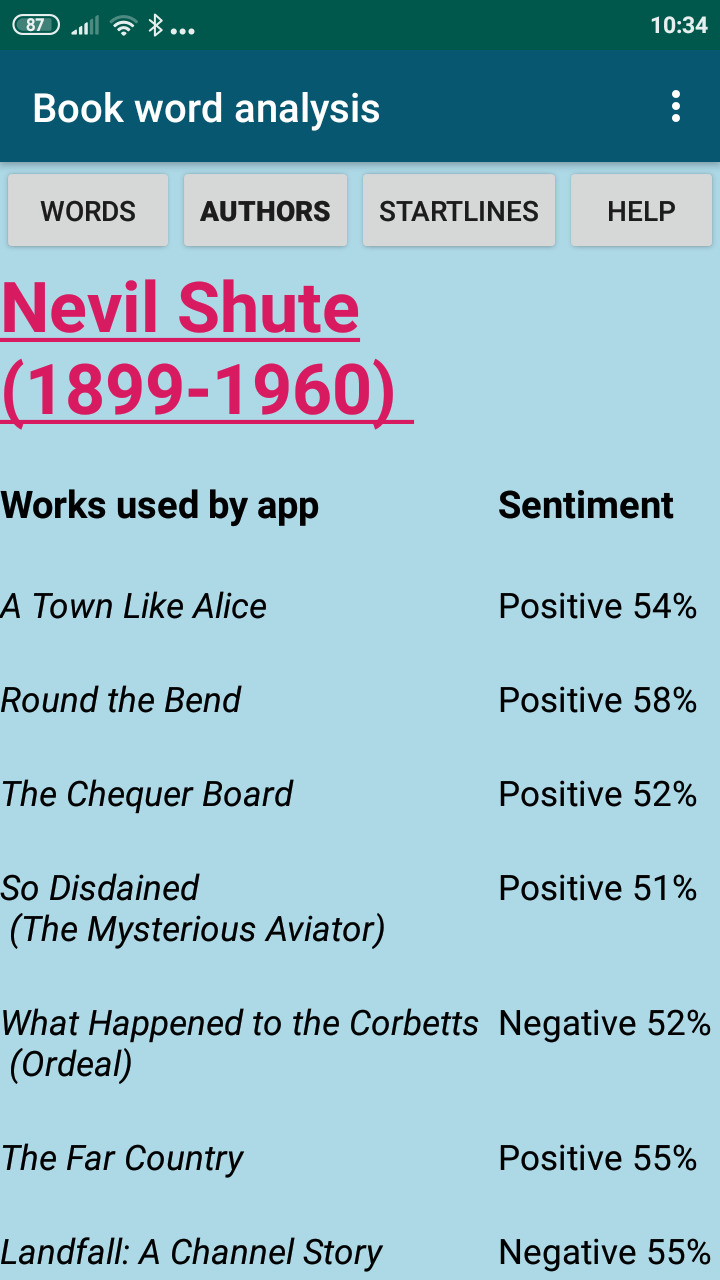
Version 4 of this Android app includes sentiment analysis of all the literary works used for similarity and word search.
In addition, 3 authors have been added, bringing the number of authors to 30.
Download app from Google play store:
https://play.google.com/store/apps/details?id=com.pronetsoftware.bookwordresearch
Sentiment analysis determines the mood of the text as either positive, negative or neutral.
Two lists of words are maintained: positive and negative. The contents of the lists depends on the text being analyzed. For example, if the text is a book review or customer comment about a product or service, then the lists will contain words that may indicate whether the reviewer/customer liked the book/product/service.
Book word analysis uses custom lists that include not only words expressing mood but also actions and objects that may be helpful in determining the general mood of a literary work.
The number occurences of positive and negative words in the work are counted. Some words may signify a different sentiment depending on preceding words. For example ‘like’ may be positive if preceded by ‘I’, ‘we’, ‘they’, etc., but is negative when preceded by ‘not’ or ‘don’t’. In other cases, it doesn’t represent any sentiment, for example: ‘ The rain rolled like gun-smoke…’
The analysis will be further refined in future versions, both by refining the positive/negative lists and by further analysis of the context in which the word is used.
The positive/negative level is shown in the author pages in the app, next to each work used. The level is expressed in percentages. For example, a 51% negative work is only very slighly negative. 65% indicates a very negative sentiment. If the difference between the number of occurences of positive and negative words is less than 1 percent then the work is marked as neutral.
There are many more different negative than positive words.
Sentiment analysis is also helpful in analysing the general style of the authors included in the app. For example, the authors Jane Austen and Nevil Shute stand out as being more positive than many other authors. This may indicate that either the plot, or the style of writing (for example, courteous / cynical / detached) of these authors is distinct.
